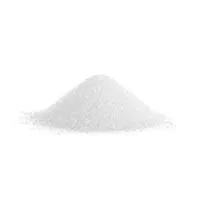
antimicrobial food additives
The Role of Antimicrobial Food Additives in Food Safety and Preservation
In recent years, the food industry has faced increasing challenges related to food safety, preservation, and spoilage. Microbial contamination, leading to foodborne illnesses, poses serious health risks to consumers and significant financial losses for producers. To combat these issues, the use of antimicrobial food additives has gained traction. These substances not only enhance the shelf-life of food products but also play a critical role in maintaining their safety and quality.
Antimicrobial food additives are substances that inhibit the growth of bacteria, yeasts, and molds, thereby preventing food spoilage and extending shelf-life. Common examples include preservatives such as sodium benzoate, sorbic acid, and potassium sorbate. These additives are often incorporated into food products to ensure that they remain safe and palatable for a more extended period. By doing so, they reduce the risk of foodborne illnesses caused by pathogens like Salmonella, Listeria, and E. coli.
One of the primary reasons for using antimicrobial additives is the increasing globalization of the food supply chain. As food products are transported over long distances and stored for prolonged periods, they are vulnerable to microbial growth. Antimicrobial additives serve as a vital defense mechanism against these threats, providing an extra layer of protection that helps to preserve the quality of food during its journey from farm to table.
antimicrobial food additives

In addition to enhancing food safety, antimicrobial additives also contribute to reducing food waste. According to the Food and Agriculture Organization (FAO), approximately one-third of all food produced globally is wasted, much of which is due to spoilage. By extending the shelf life of food items, antimicrobial additives help to minimize spoilage, thereby contributing to a more sustainable food system. This has significant implications for food security, as it allows more food to reach consumers without compromising safety or quality.
Moreover, the development of natural antimicrobial additives has seen a surge in popularity. Consumers are increasingly concerned about the ingredients in their food, leading to a demand for safer, more natural alternatives to synthetic preservatives. Natural antimicrobials such as essential oils, garlic extract, and plant-derived compounds are being explored for their potential to inhibit microbial growth while maintaining a clean label. These natural additives offer the dual benefit of enhancing food safety and appealing to health-conscious consumers.
Despite the clear advantages of antimicrobial food additives, there are also considerations regarding their use. Regulatory agencies such as the Food and Drug Administration (FDA) and the European Food Safety Authority (EFSA) closely monitor the safety and efficacy of these substances. It is crucial that food manufacturers adhere to established guidelines to ensure that the levels of additives used are safe for consumption. Additionally, consumer education regarding the benefits and safety of these additives is essential to dispel myths and misinformation.
In conclusion, antimicrobial food additives play a pivotal role in enhancing food safety, extending shelf life, and reducing food waste. As the global food supply chain continues to evolve and face challenges, the need for these additives remains critical. With an increasing emphasis on natural alternatives, the food industry must balance safety, quality, and consumer preferences. By doing so, we can ensure a safer and more sustainable food future for all.
-
Pure Sodium Dichloroisocyanurate Dihydrate | Powerful DisinfectantNewsAug.29,2025
-
Industrial Chemicals: Quality & Purity for Every IndustryNewsAug.28,2025
-
Nitrile Rubber Honoring Strict Production StandardsNewsAug.22,2025
-
Aspartame Ingredients Honoring Food Safety ValuesNewsAug.22,2025
-
Fertilizer for Balanced Plant NutritionNewsAug.22,2025
-
Cyanide Gold Processing with High Purity AdditivesNewsAug.22,2025
-
Formic Acid in Textile Dyeing ApplicationsNewsAug.22,2025
Hebei Tenger Chemical Technology Co., Ltd. focuses on the chemical industry and is committed to the export service of chemical raw materials.
-

view more DiethanolisopropanolamineIn the ever-growing field of chemical solutions, diethanolisopropanolamine (DEIPA) stands out as a versatile and important compound. Due to its unique chemical structure and properties, DEIPA is of interest to various industries including construction, personal care, and agriculture. -

view more TriisopropanolamineTriisopropanolamine (TIPA) alkanol amine substance, is a kind of alcohol amine compound with amino and alcohol hydroxyl, and because of its molecules contains both amino and hydroxyl. -

view more Tetramethyl Thiuram DisulfideTetramethyl thiuram disulfide, also known as TMTD, is a white to light-yellow powder with a distinct sulfur-like odor. It is soluble in organic solvents such as benzene, acetone, and ethyl acetate, making it highly versatile for use in different formulations. TMTD is known for its excellent vulcanization acceleration properties, which makes it a key ingredient in the production of rubber products. Additionally, it acts as an effective fungicide and bactericide, making it valuable in agricultural applications. Its high purity and stability ensure consistent performance, making it a preferred choice for manufacturers across various industries.





